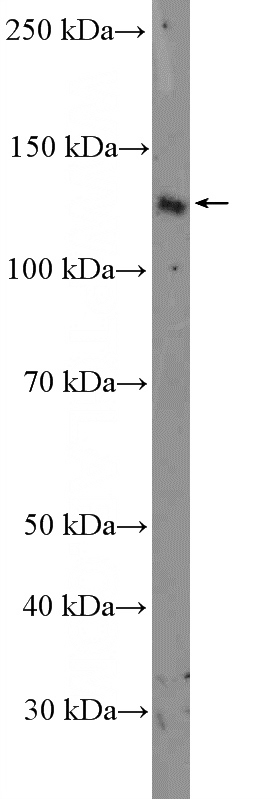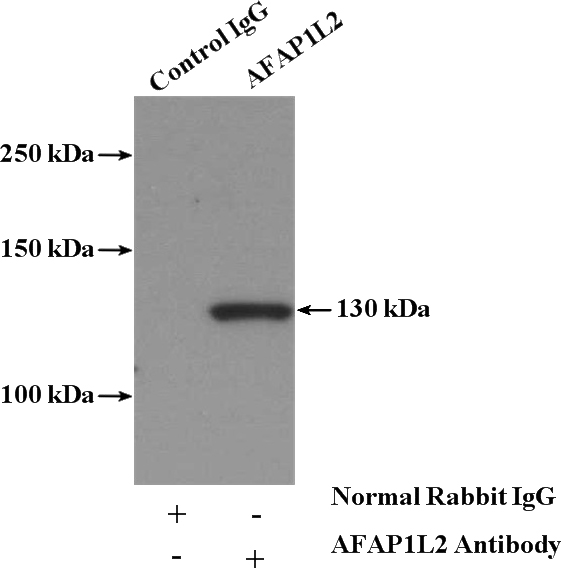-
Product Name
AFAP1L2 antibody
- Documents
-
Description
AFAP1L2 Rabbit Polyclonal antibody. Positive IP detected in mouse thymus tissue. Positive WB detected in mouse thymus tissue. Observed molecular weight by Western-blot: 130 kDa
-
Tested applications
ELISA, IP, WB
-
Species reactivity
Human,Mouse,Rat; other species not tested.
-
Alternative names
AFAP1 like protein 2 antibody; AFAP1L2 antibody; FLJ14564 antibody; KIAA1914 antibody; XB130 antibody
-
Isotype
Rabbit IgG
-
Preparation
This antibody was obtained by immunization of AFAP1L2 recombinant protein (Accession Number: NM_001001936). Purification method: Antigen affinity purified.
-
Clonality
Polyclonal
-
Formulation
PBS with 0.02% sodium azide and 50% glycerol pH 7.3.
-
Storage instructions
Store at -20℃. DO NOT ALIQUOT
-
Applications
Recommended Dilution:
WB: 1:200-1:1000
IP: 1:200-1:2000
-
Validations

mouse thymus tissue were subjected to SDS PAGE followed by western blot with Catalog No:107904(AFAP1L2 Antibody) at dilution of 1:300

IP Result of anti-AFAP1L2 (IP:Catalog No:107904, 4ug; Detection:Catalog No:107904 1:500) with mouse thymus tissue lysate 2800ug.
-
Background
AFAP1L2, also named as Actin filament-associated protein 1-like 2 or XB130, is a 818 amino acid protein, which contains two PH domains. AFAP1L2 is detected in spleen and thyroid, and at lower levels in kidney, brain, lung and pancreas. AFAP1L2 localizes in the cytoplasm and may play a role in a signaling cascade by enhancing the kinase activity of SRC. AFAP1L2 promotes thyroid tumor growth, and its expression in these cancer cells may affect cell proliferation and survival by controlling the expression of multiple genes, especially transcription regulators.
-
References
- Cunha IW, Carvalho KC, Martins WK. Identification of genes associated with local aggressiveness and metastatic behavior in soft tissue tumors. Translational oncology. 3(1):23-32. 2010.
Related Products / Services
Please note: All products are "FOR RESEARCH USE ONLY AND ARE NOT INTENDED FOR DIAGNOSTIC OR THERAPEUTIC USE"
